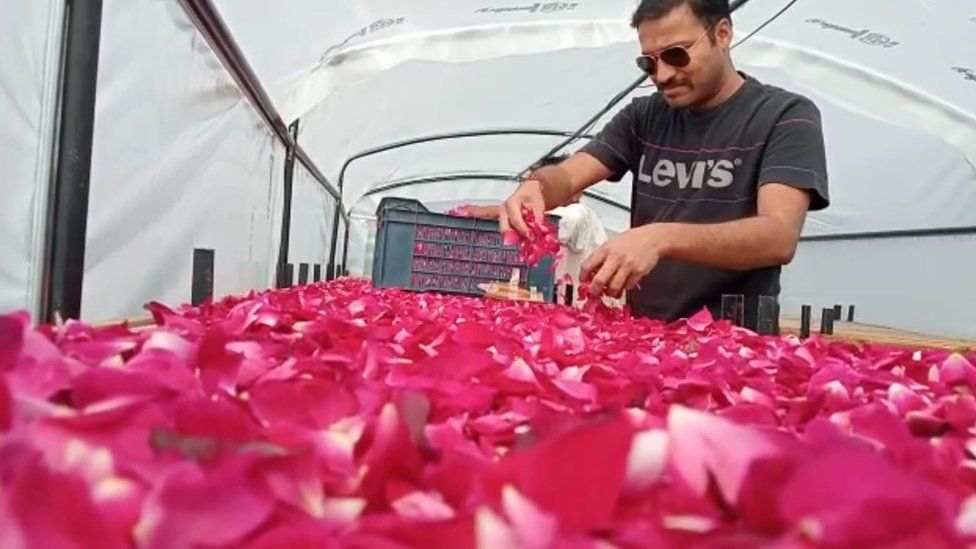-

-
-
Loading

Loading

Kapil Jain's father had a vision for his children to have a better life than that of farmers. Thus, they were all educated and moved to the city to pursue different professions. However, after some time in the city, Mr. Jain became tired of the urban lifestyle and decided to move back to his family farm in Rajasthan, India. He found solace in the touch of the earth and desired to return to farming. Instead of growing the same crops as his father, Mr. Jain sought to find a crop that would require less water due to water shortages in his region. He decided to experiment with roses, which thrive in sunny conditions and need relatively little water compared to traditional crops. While the roses grew well, the challenge was harvesting them and getting them to the market before the petals began to fall. The flowers had to be sold shortly after being picked. To meet the high demand, the roses had to be at the market by 05:00, which meant they had to be picked between 02:00 and 03:00. This made finding workers difficult, and as a result, Mr. Jain lost around 70% of his initial crops. Determined to change the situation, he turned his roses into rose water and rose oil. Additionally, he purchased a solar-powered drying system for his tomato crop. In India, getting harvested produce to the market in good condition is a challenge faced by many farmers. Lack of infrastructure, limited processing capacity, and natural disasters often lead to significant losses. Varun Raheja, founder of Raheja Solar Food Processing, developed a simple air drying system that utilizes sunlight and solar-powered fans to dry produce. The system is affordable, portable, and can reach even the most remote villages. WayCool, an Indian agri-tech firm, takes a different approach. They work with thousands of farmers, own distribution centers, and utilize sophisticated systems to forecast demand for agricultural products. Through data analysis and modern distribution systems, WayCool aims to reduce supply chain losses to under 2%. Despite the advancements in technology and innovative solutions, there is still much work to be done to support remote farmers in India. Farmers like Sagar Lokhande, who lack storage facilities, often face losses when prices drop due to market fluctuations. To overcome this, Lokhande is considering freezing his produce to extend its shelf life and increase profitability. Marcella D'Souza, the director of the Centre for Resilience Studies, emphasizes that while technology can bring efficiency and effectiveness to farming, it must be accompanied by a holistic approach. This approach includes restoring natural ecosystems, incorporating traditional knowledge, providing support, and access to credit for successful farming.